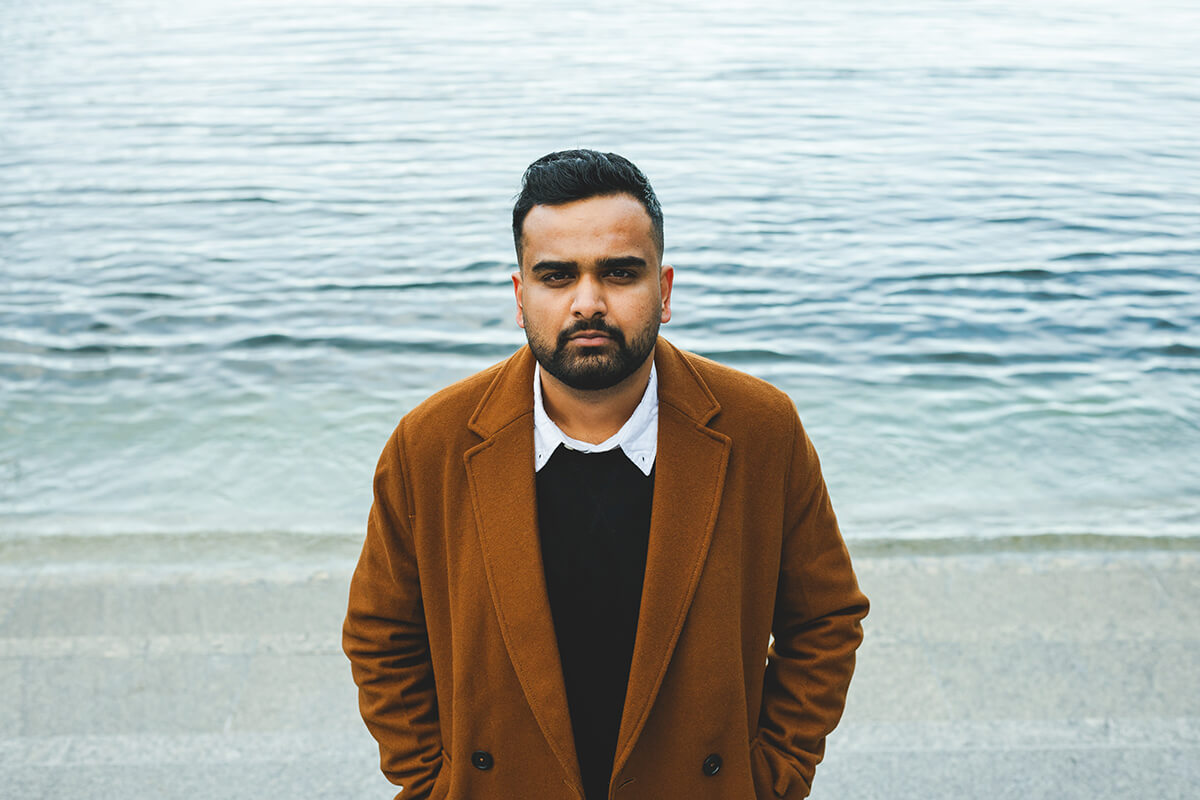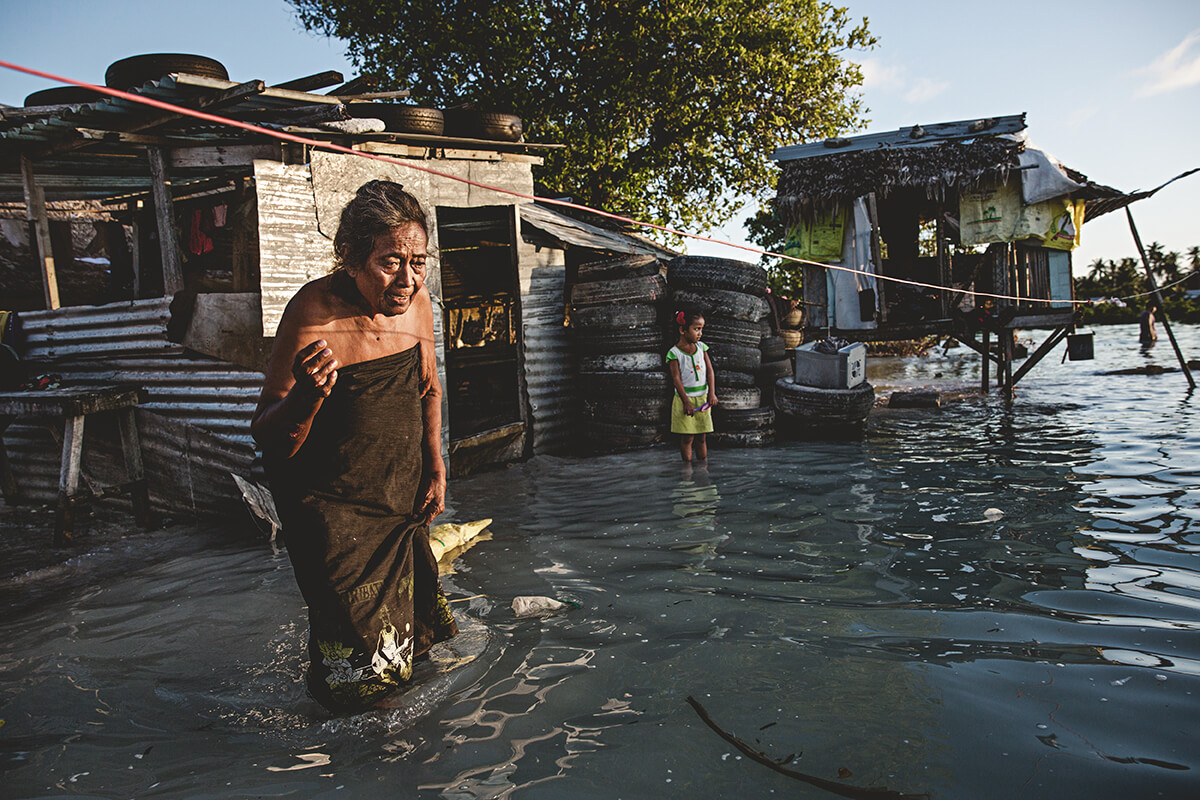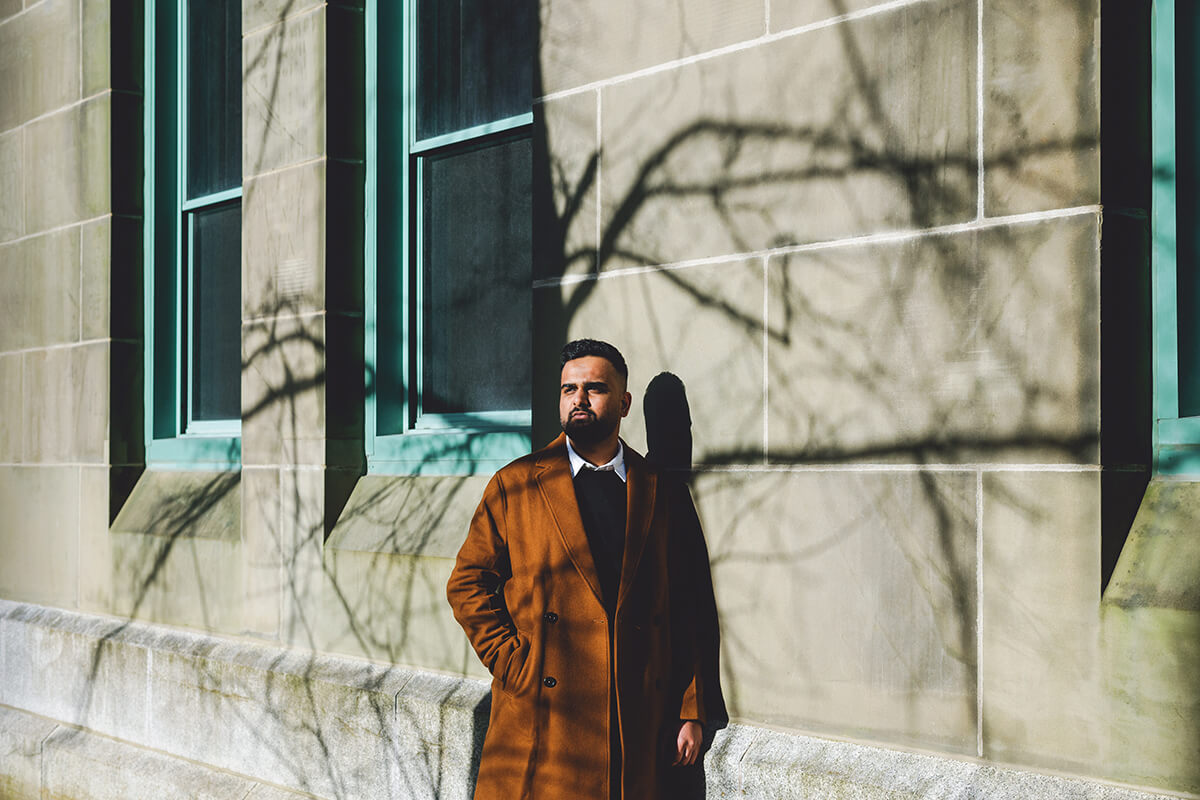
Hiding in Plain Sight
Their struggles have been all over the news in recent years—from people fleeing extreme wildfires in North America to escaping unprecedented flooding in Pakistan to seeking refuge from record-breaking drought in Somalia. But the people UM grad student Nabil Iqbal is trying to help don’t exist. At least, not legally.
Oxford Languages defines a climate refugee as “a person who has been forced to leave their home as a result of the effects of climate change on their environment” yet you won’t find the term in any legal documents.
They are invisible just by name, not by numbers. According to the Internal Displacement Monitoring Centre, 8.7 million people were forced to leave their homes in 2022 as a result of natural disasters—floods, droughts and wildfires chiefly among them. It is the highest reported figure in a decade.
The topic may not feel pressing here on the Canadians Prairies but Iqbal insists upcoming—and, potentially, massive—migration will be felt in every corner of our globe. While there’s no data on how many people are crossing international boarders, largely because there is no globally recognized term for climate refugees, the Institute for Economics and Peace estimates that by 2050 there will be 2.8 billion people facing severe ecological threats worldwide.
“As part of my current research, I divided the world into various parts to understand where this problem is more persistent,” explains Iqbal. “But what I found is that this issue is prevalent in each and every region. And yet there is not a single person in this world who has been given either refugee protection or any protection under human rights law because they’ve been impacted by the effects of climate change—that is concerning.”
From Manitoba, grad students like Iqbal pursue careers in advocacy through the unique Master’s of Human Rights program in the Faculty of Law, engaging in solution-finding missions for communities around the world who are falling through the cracks. Unlike those displaced by conflicts, which could resolve in time, the circumstances faced by climate refugees is only expected to intensify with upticks in natural disasters and added risks for coastal communities. (“We cannot expect ocean levels to come down,” Iqbal says.)
This developing field of academia is the reason he left his native India, where he was working as a legal assistant. A UM fellowship recipient, Iqbal can now devote a generous 15 months to studying climate refugees and hopes he will make a nuanced contribution to the academic literature and provide practical advice to lawmakers.
He’s trying to answer questions critical to the issue, like: Exactly when does a person become a climate refugee?
“If we talk about climate there is no particular threshold that we can say, ‘Okay after this incident, this person can be called a climate refugee.’ If a country is in a situation of war for five days, after that, a person can be called a refugee. But in most climate change situations it’s a slow onset—over five, 10, maybe 15 years.”
Take, for example, the inhabitants of Kiribati: a small island nation in Micronesia slowly shrinking by the rising ocean. It’s now at risk of becoming the first country in the world to be swallowed into the sea. Contaminated drinking water, destroyed homes and depleting agricultural land are just some of their current hurdles. At least one family has tried to leave the island but was denied asylum by neighbouring New Zealand because the threat to life was not “imminent.”

An elderly woman wades through knee-high sea water that flooded her house and village in Kiribati. Each year, the sea level rises by about half an inch // Photo by Jonas Gratzer / Getty Images
This is an unfolding story Iqbal can also gain insight about from his professor, human rights expert Kjell Anderson, an acclaimed recruit in 2019, when the master’s program launched as the first of its kind in Canada. Anderson, whose latest research explores the criminology of genocide and hate crimes, has witnessed the historic happenings in Kiribati firsthand, while living in nearby Fiji (one of eight countries he’s called home).
A lawyer defending a climate refugee faces a difficult question: which laws best apply to climate refugees? Human rights law and refugee law are the two most referenced, yet both are flawed. Human rights law does not address permanent resettlement, which most climate refugees seek, although refugee law does. However, a person can only receive protection under refugee law if they are being persecuted.
Ironically, Iqbal notes, most climate refugees seek safety at the hands of their prosecutors: Developed countries like Australia, the U.S. and Canada are some of the biggest carbon emitters.
By analyzing the pros and cons of each law he hopes to make a recommendation on the best legal approach, whether it’s making amendments to current laws or developing a new body of law that addresses climate refugees directly.
He is adamant that the situation merits an urgent response. “A lot of people think that this is something which will happen in 10 or 15 years, but these climate refugees are having an issue right now. It’s happening in a very huge way.”

Photo by Rachael Shrum
Point of View // Nabil Iqbal on the right to a healthy planet
UM’s interdisciplinary Master of Human Rights program attracts students who are global citizens. They’re a cohort inspired to speak up and shape the dialogue on international conversations. Iqbal is no exception (check out a curated list of his articles here). Among the intriguing topics he’s tackled: the legal right to a healthy environment.
He explored this one in the wake of a deadly polymer gas leak in his home country of India.
“Over the past few decades, substantial damage to the environment has increased exponentially, which has affected the wide arena of human rights,” he wrote in The Jurist. “While there is a large list of civil and political right violations due to environmental degradation, the right to a healthy environment is least discussed.”
Did you know that Lithuania may be the standout exception? With its stern environmental protection laws, the country should serve as a model for others, says Iqbal. Their laws entitle Lithuanians to access information, approach the court, and challenge the government if their environmental rights are being violated.
“It is high time that this right attains the status of a fundamental right in the international realm.”
Nabil Iqbal received UM fellowships and scholarships towards his tuition and living expenses. Among them: a 2023-24 UM graduate fellowship from the Centre for Professional and Applied Ethics. These fellowships not only support researchers in the field of ethics but are open to those in other areas and faculties, encouraging all grad students to consider the ethical implications of their work and integrate ethics into their research.






